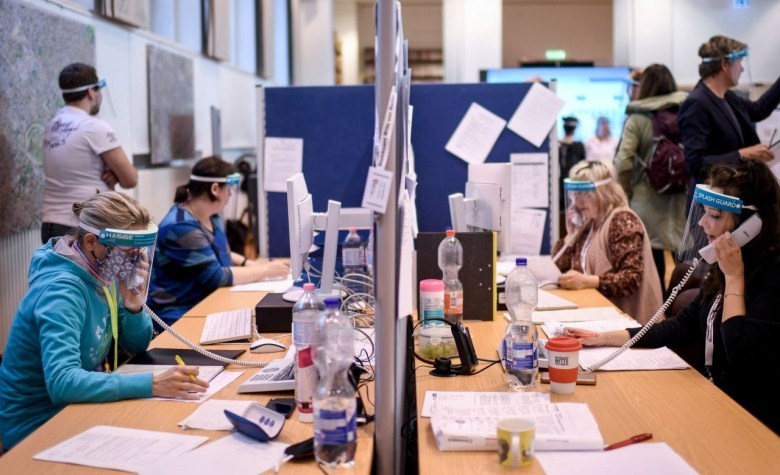Flanders' contact tracing system - a crucial first line of defence against the coronavirus - is still struggling with many teething troubles nine months after it was launched, causing experts to plead for a complete restart.
At the start of the second wave, the Flemish contact tracing system was not ready, and it is still suffering from an accumulation of problems behind the scenes today, a report by the investigative VRT programme 'Pano' showed on Wednesday.
The ICT system, which was designed specifically for contact tracing, still has issues, according to Niel Hens, a biostatistician at the University of Hasselt and Antwerp epidemiologist Wouter Arrazola de Oñate.
Infected people cannot call back if they still have questions after a call, and each infected person is only able to pass on a maximum of ten contacts, according to Hens, who is a member of the Flemish steering group on contact tracing.
"The purpose of having this fine-grained data is to take very targeted action," he said. "Then, you can really identify where the sources of infection are, and take targeted action as a government."
Related News
- Coronalert: Which countries trade data with Belgium's Covid App?
- Belgian university to launch Covid-19 tracing and support unit
His speciality lies in analysing the collected data, but the call centres collect far too little to work with, according to Hens. "Through contact tracing, we also want to establish an 'epidemic tree': who infects who? We want to know where infections take place and how the virus is transmitted in society."
"Without that data, we can hardly explain, for example, why we close bars and not hairdressers," he said, adding that the link between individuals was and is not provided for in the ICT system, despite repeated requests.
According to Pano's calculations, there is no data at all about the close contacts of almost 70% of infected people. "If you do not have such data, you have to base your policy on data from abroad. Or on less intricate insights," Hens said.
Heleen Aerts, a general practitioner from Antwerp, said that the contact tracing system often works well, but sometimes not at all, referring to a case with a father of five children, who had passed on the data of the rest of the family members as risk contacts after having tested positive.
"For each of those family members, the man was called again," Aerts said in the report. "It was always someone else who called, and he also received different advice from different tracers. One contact tracer said that my patient could still go to work, another did not. That was confusing."
The report shows that the call centres and health insurance funds carrying out the tracing received their contracts after a non-transparent tendering process, which led to far too high prices.
Out of a total of €75 million, more than €20 million could have been saved, according to the reporters. "The conclusion is: Flanders is paying tens of millions too much for an underperforming system," they said.
According to epidemiologist Arrazola de Oñate, who has a lot of experience with contact tracing, it would be better to replace the current system completely.
"If there were time, we'd better just tear down the existing system completely and start all over again," Arrazole de Oñate said. "Then we would have something more efficient. Because we are going to need this for a long time, especially if new viruses come along."
"One year after the start of this pandemic, we still do not have ideal data collection," added Hens. "We could have done much more with the data."
Maïthé Chini
The Brussels Times

